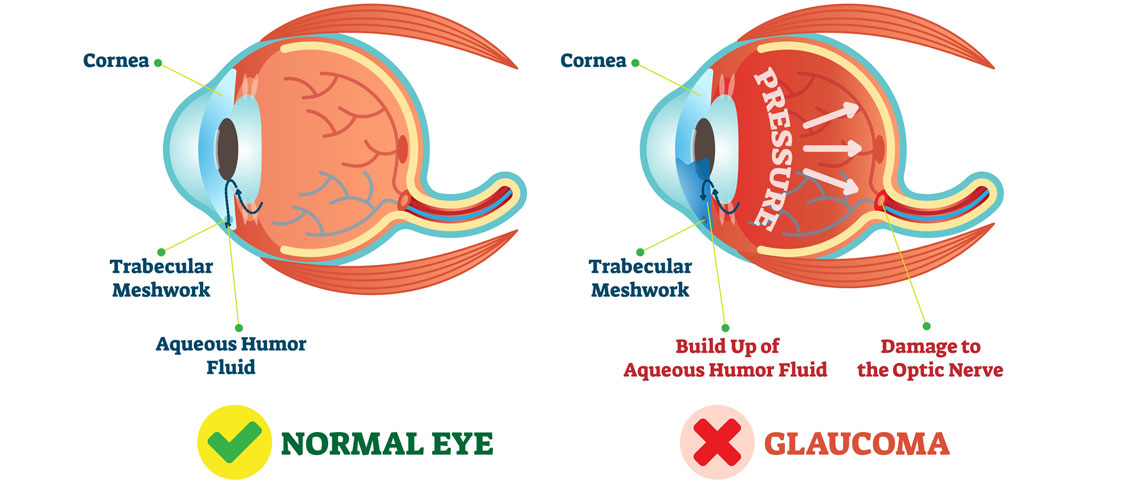Glaucoma
What is glaucoma?
In the normal eye a watery liquid is constantly produced and drained away through tiny drainage canals. This fluid maintains a pressure within the eye that remains constant as long as the fluid drains as quickly as it is produced. The normal intraocular pressure is between 10 and 21 mm Hg. Glaucoma may occur when there is a build-up of pressure within the eye due to clogged or covered drainage canals, where the eye fluid cannot drain away.
Glaucoma is a physical condition within the eye and it is not a form of cancer or tumor, it is not infectious or contagious, it is not a danger to life itself. Glaucoma is a painless and silent disease and if it is left untreated or neglected, it will result in loss of vision and even lead to blindness.
Are there different types of glaucoma?
Yes, there are many different types, but there are two major types: Chronic and Acute. Chronic open angle glaucoma (COAG) is the most common form glaucoma. In COAG the entrance to the drainage canals is open, but there is a clogging problem inside the drainage canals. The disease is slow, causes gradual loss of small patches of vision, it is a lifelong condition and responds well to medication and surgery.
Acute closed-angle glaucoma is rare. The eye pressure goes up quickly because the drainage canals are suddenly blocked. This causes severe headaches or eye pain, nausea, rainbows around light and severely blurred vision. This glaucoma demands immediate medical attention, day or night.
Does glaucoma run in families?
Yes, if one parent has COAG the chances of offsprings are 10 time greater than in the non glaucoma population.
How is glaucoma treated?
Generally speaking, glaucoma cannot be cured, but it can be controlled. Once diagnosed, it requires constant, lifelong care. The major goal of glaucoma treatment is to keep the eye pressure in a range that prevents further glaucoma damage. This can be done with eye drops, pills, laser treatments and microsurgery.
What advice is there for patients with glaucoma?
Follow your eye specialist’s instructions, use medications regularly, know what your medications are, know their side effects, tell your doctors that you have glaucoma and what medications you are using, call your eye specialist about any unusual changes in your eyes or vision, plan regular check-ups on time.

